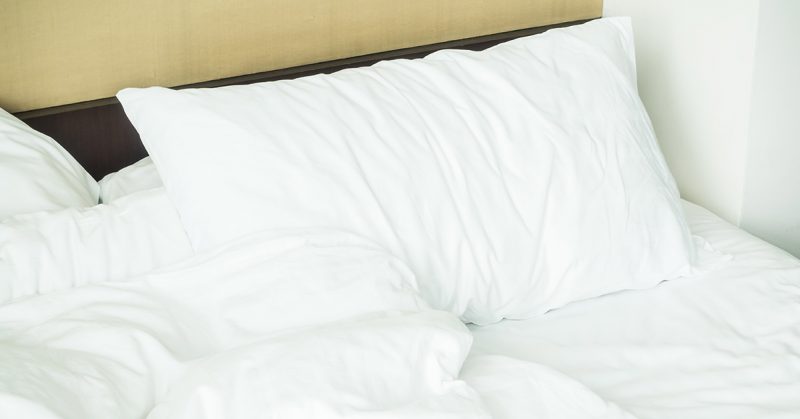You don’t have to be a medically diagnosed germaphobe to dislike certain unhygienic habits. Think about how a regular day out in the city goes.
You either ride in your car, catch a bus, take the subway or a taxi — all vehicles that have probably accumulated a lot of germs in the past 12–24 hours.
You get to work and flop down in your seat, and when was the last time you cleaned that thing?
You got to lunch and sit down in another seat, and guess how many people already sat on it with sweaty butts and backs before you?
You go to the park to catch a break. Do you lean on a dirty pole or rest on a germy bench?
You are walking on the pedestrian lane, packed with countless people swishing past each other and transferring saliva, sweat, and other bodily fluids in unconscious motions.
You get in another vehicle on the ride to my place.
When you get to my house, you flop right down on my bed in the same clothes you’ve been wearing all day. It doesn’t even occur to you that you’ve probably racked up an insane amount of microbes during the past 8–12 hours you were outside. As long as you can’t see the germs, they are not that serious.
Imagine how annoyed I’d be if I’d just been to the cleaners. When you flop down on my bed with outside clothes, it means I’ll have to change the sheets again.
Your guests might get upset, but you must tell it like it is
I try not to come off as rude when telling people to sit on the chair if they are not going to shower and change. Also, some people might get the wrong idea when you tell them to strip off their outside clothes. Hey, fella, it’s not what you think, I just can’t stand the thought of germs on my bed.
Sometimes, I save myself the stress and cover my bed with another sheet. This way, I can easily take it off and retain my clean bed when they are gone.
Just so their feelings won’t be hurt, here’s what I often say: “I’m sorry but even I won’t sit on the bed in my outside clothes. We’ve been on several surfaces in many dense areas all day and have racked up a lot of germs. It’s the healthier thing to do to avoid your bed until you’re completely clean.”
It’s absolutely nothing to feel bad about. We are all humans and we all sweat and rack up germs.
To make things easier, we can start teaching these habits in schools, across all academic levels. Along with washing your hands frequently, taking off your outside shoes at the door, and not sharing personal effects, DO NOT SIT ON BEDS IN YOUR OUTSIDE CLOTHES. [1]
Germs stick – and can cause a whole lot of problems
Researchers in a 2010 study revealed that germs can stick to clothes and remain viable for weeks and months. [2] According to lead author Philip Tierno, MD, director of Microbiology and Immunology at New York University, some of the clothes tested during the study were brand new items still with tags on them.
“On this black and tan blouse we found representation of respiratory secretions, skin flora, and some fecal flora,” Tierno said.
My stomach just churned.
People buy new clothes and assume they are already clean since they still have tags on them, forgetting that clothes are touched, tried on, and returned to racks. If new clothes can be this dirty, imagine what an outfit worn for an entire day would look like under a microscope.
Humans are constantly sweating and shedding skin cells and oils. On average, a healthy human being sheds about 500 million skin cells and a liter of sweat daily.
According to Dermascope, dirty fabrics can trigger a host of infections, skin irritation, and possibly diseases. [3]
“One of the main causes of back and chest acne is caused by prolonged pressure and friction by anything repeatedly rubbing on skin, such as tight shirts and backpacks Dirty sheets and dirty clothes can transfer dirt and bacteria into the hair follicle, causing it to clog and become infected.”
Especially for people with sensitive skin, keeping your bed sheets and pillowcases constantly clean should be priority. No one’s going to suffer the consequences later with you, so you need to be more assertive in telling people to maintain your hygiene standards.
Fabric hygiene is more important now that we are dealing with a droplet-transmitted pandemic. Studies have shown that the coronavirus may stay viable for up to 72 hours on some surfaces, although fabrics weren’t explicitly included in the original tests. [4] However, you can never be too careful. It’s a healthy practice to immediately change out of your clothes once you get home. Wash your hands, your face, or just take a completely refreshing shower.
References
- “Is it OK to sit on your bed in outside clothes? Here’s what experts say.” Today. Rheana Murray. Retrieved August 27, 2020.
- “How Clean Are Your New Clothes? Find Out.” ABC News. Andrea Canning. Retrieved August 27, 2020.
- “Acne on the Body.” Dermascope. Chau Stone. Retrieved August 27, 2020.
- “How Long Does COVID-19 Coronavirus Live On Clothes? How To Wash Them.” Forbes. Bruce Y. Lee. Retrieved August 27, 2020.

